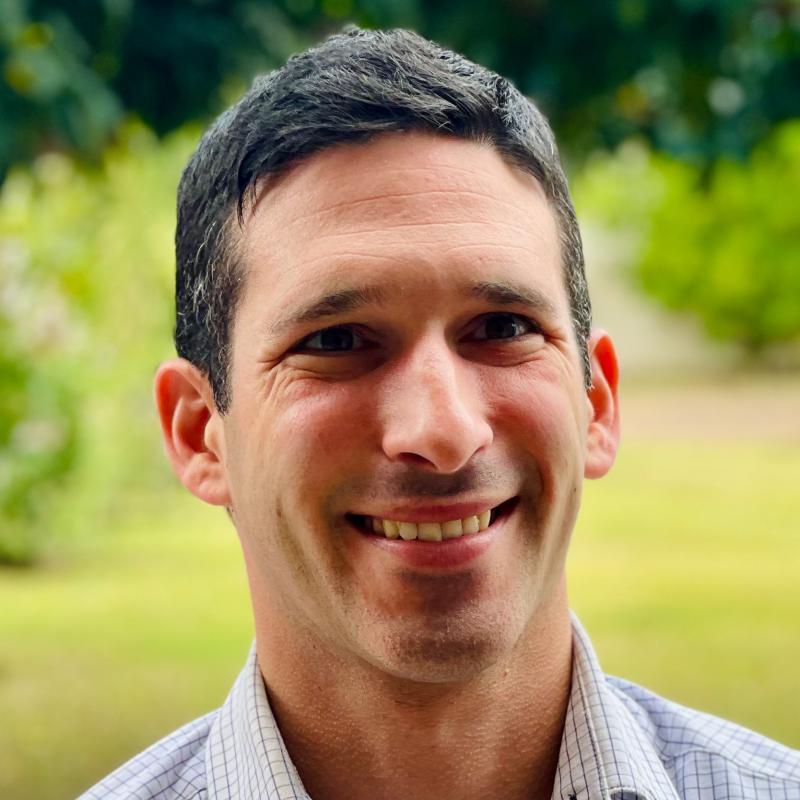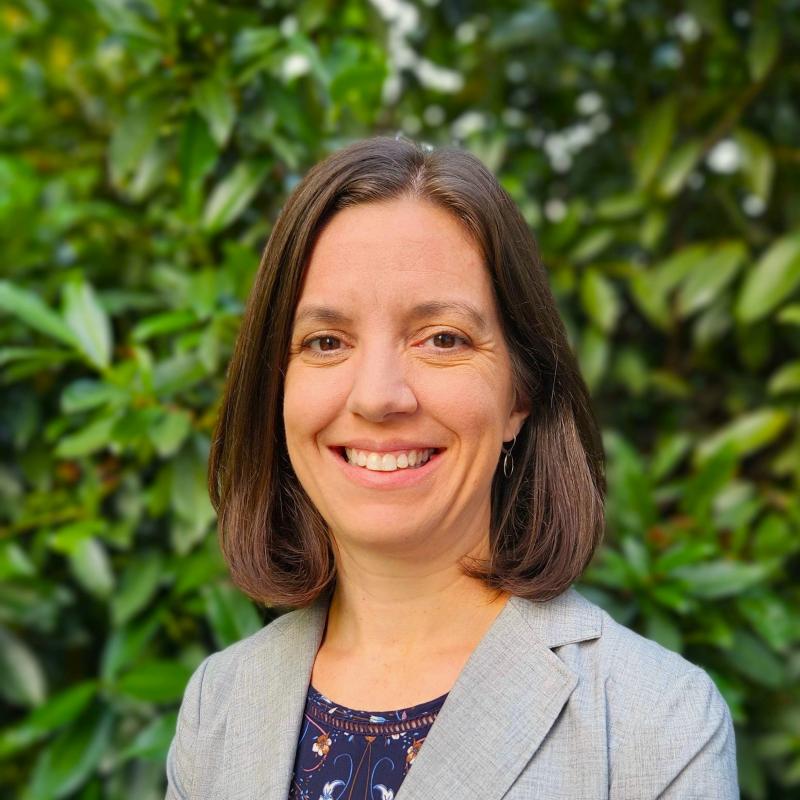Blog
Improving implementation to improve learning outcomes: The What Works Hub for Global Education
Despite substantial progress in schooling over the past few decades, millions of children attending school have stagnant learning outcomes. For example, three-quarters of Grade 3 children in Kenya, Tanzania and Uganda cannot read a sentence such as the “the name of the dog is puppy.” In some cases, children in low-and middle-income countries are learning less in classrooms today than they were 50 years ago.
In recent years, evidence on how to improve learning outcomes has grown substantially – in education alone over 500 impact evaluations have been conducted, mostly testing the effectiveness of interventions and policies aimed at improving learning. A robust evidence base on improving educational outcomes now exists, building on research programmes such as the Global Education Evidence Advisory Panel (GEEAP), the Research on Improving Systems of Education (RISE) Programme, and others.
However, far too few of the programs found to be effective have been successfully implemented at scale, across contexts, and by governments. Moreover, while government reforms are central to improving learning at scale, studies often remain small and are conducted with non-profits rather than governments.
The What Works Hub for Global Education will contribute to filling these gaps by advancing an “implementation science” in education. The goal is to support governments to implement effective educational reforms and improve learning outcomes at scale. What do we mean by implementation science? We will focus both on the implementation of science and on the science of implementation. The implementation of science will involve real-world evidence uptake by policymakers and practitioners. The science of implementation will aim to promote and codify methods and measurement amidst the inherent messiness of implementation.
We have an ambitious agenda to bridge research and practice to ensure more effective implementation of foundational learning programmes at scale. We’ll do this through three main pillars.
The first pillar is synthesising and translating evidence on how to improve foundational learning so that it can inform design and implementation of foundational learning programmes. We are taking an innovative approach to evidence synthesis and translation, bringing together academic research with implementer experience and expertise to generate actionable guidance and principles. For instance, we’ll produce guidance on the “core components” of effective approaches, such as teaching at the right level and structured pedagogy, collating multiple bodies of evidence across disciplines on the components that are core to their success. This aims to provide practical evidence-backed guidance on which components should be included when designing and implementing these types of programmes at scale; core components synthesis will also shape future learning agendas, highlighting where the evidence on certain components is less clear and requires further research. We’ll create “implementation insight notes” that use a structured approach to codify tacit and explicit implementation knowledge. And we’ll contribute to the ongoing synthesis of new approaches and studies as they are generated, feeding into both the academic literature and also into high-profile policy efforts such as reviews conducted by the Global Education Evidence Advisory Panel.
The second pillar focuses on facilitating the use of evidence by governments in their policy planning and implementation. We’re excited to be partnering with Education Labs (EdLabs), both established and new, in Ghana, India, Pakistan, Rwanda, South Africa and Tanzania, and contributing to their efforts to enable the uptake and use of evidence among policymakers. We’ll also launch policy and research fellows’ programmes, an Executive Education programme, and more, all oriented to enabling greater use of evidence in the policymaking process. The RISE Community of Practice has transitioned into the What Works Hub for Global Education Community of Practice. This active and growing group of individuals from more than 100 organisations and 30 countries largely based in the Global South will continue to share technical knowledge and experience to facilitate improved learning outcomes.
The third pillar is advancing the field of implementation science in global education through conducting research, in real time, alongside governments as they implement foundational learning reforms. Through this pillar, we’ll generate new knowledge on how to effectively implement policies and programmes at quality and at scale. With our consortium partners, we’ll conduct large research studies in four focus countries: India, Pakistan, Rwanda, and Tanzania, and additional studies in another seven project countries: Bangladesh, Botswana, Ghana, Kenya, Nigeria, Sierra Leone, and South Africa. We’ll investigate implementation through a range of methodologies including large scale RCTs, nimble A/B testing, embedding implementation measurement in outcomes funding approaches, combining quantitative and qualitative research, and more.
Our intellectual framework will guide the research on implementation science. This includes encouraging more shifts from “efficacy” to “efficacy +” studies – such as testing of scalable models across contexts and with government. It also includes encouraging more research of policy processes – such as studying decision-making processes by policymakers – as well as incentives and delivery mechanisms in bureaucracies. We’ll also advance common approaches to measuring implementation, cost and learning. Already some of our early work reveals that this type of measurement is crucial. For example, today implementation is measured in less than 12.1 percent of studies. Yet measuring and accounting for implementation is one of the most crucial factors in generalising evidence across contexts and delivery models. By promoting measurement of implementation, we can better understand and improve it.
What Works Hub for Global Education Intellectual Framework
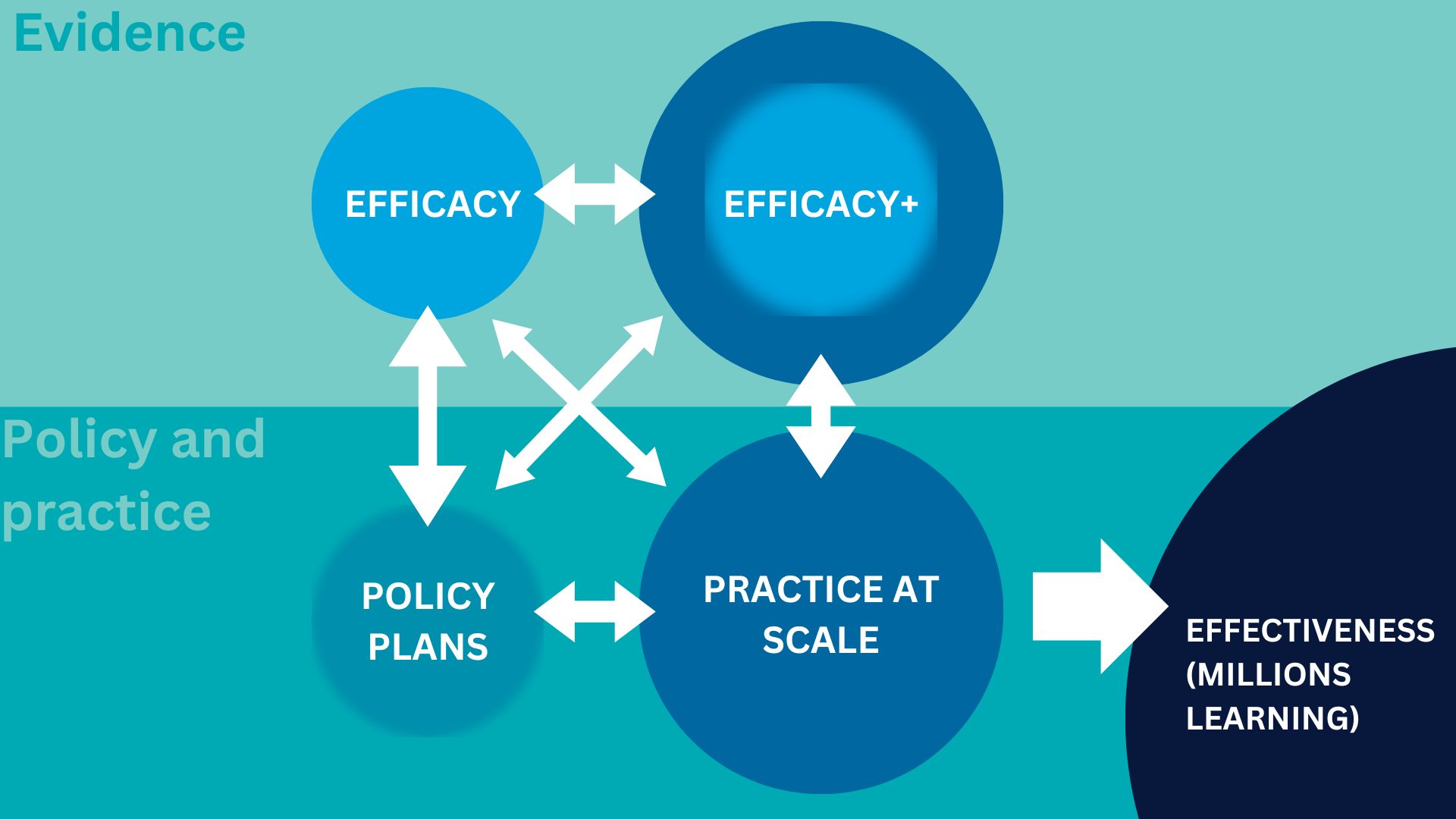
We are excited to have a large group of partners on this journey with us. We get to work with a world-class consortium of more than 40 organisations including a unique mix of governments, implementors and researchers, all of which are committed to the common goal of improving children’s foundational learning. We also have key strategic partners from large multilateral and bilateral institutions who share our commitment to implementation science and improving children’s learning.
Please join the What Works Hub for Global Education movement! You can sign up for our newsletter, join our Community of Practice, sign up to attend our upcoming conference, apply to our most recent request for proposals, and reach out any time. We look forward to hearing from you and learning together.
Angrist, N., and Kaffenberger, M. 2024. Improving implementation to improve learning outcomes: The What Works Hub for Global Education. What Works Hub for Global Education. 2024/001. https://doi.org/10.35489/BSG-WhatWorksHubforGlobalEducation-BL_2024/001
Discover more
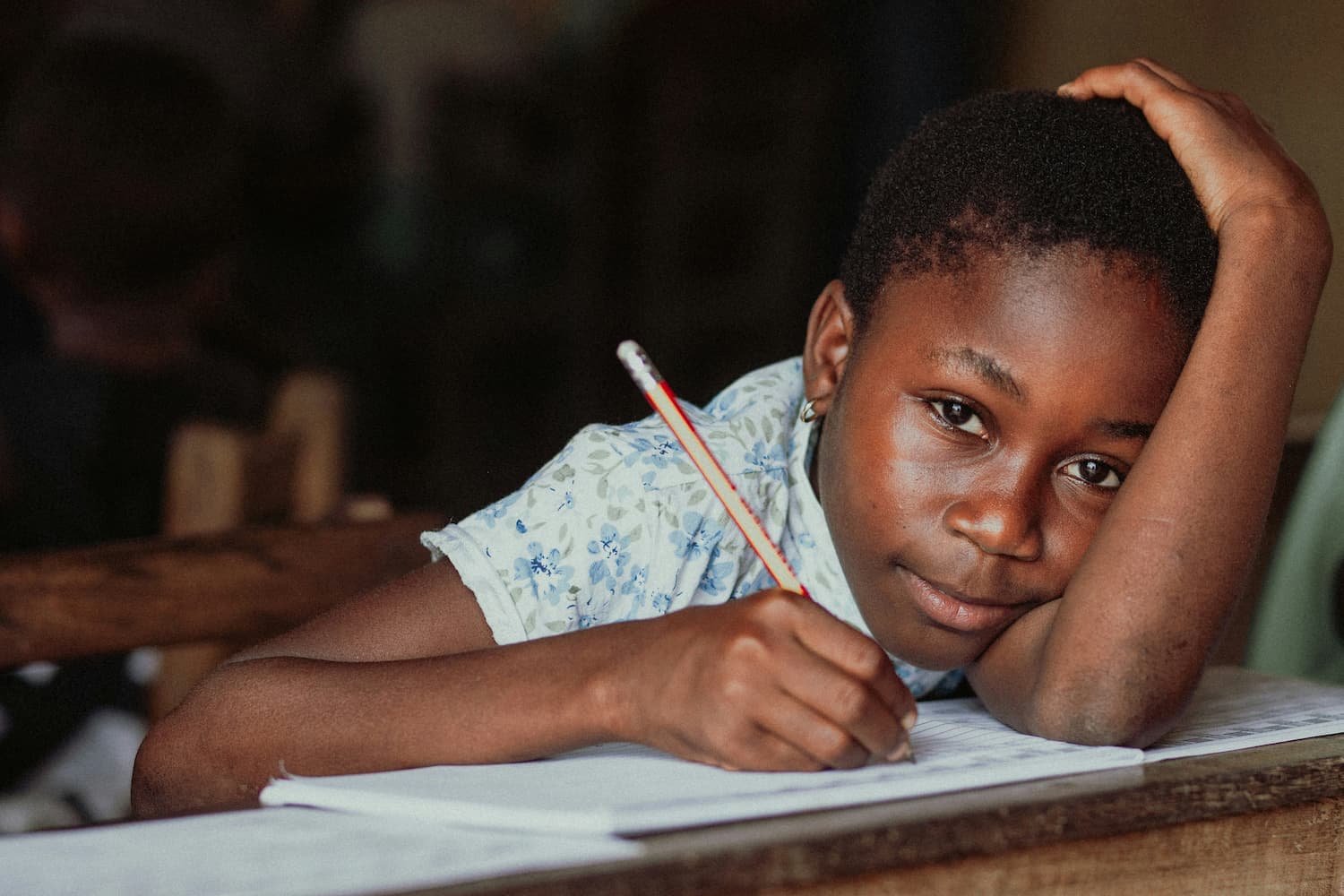
What we do
Our work will directly affect up to 3 million children, and reach up to 17 million more through its influence.
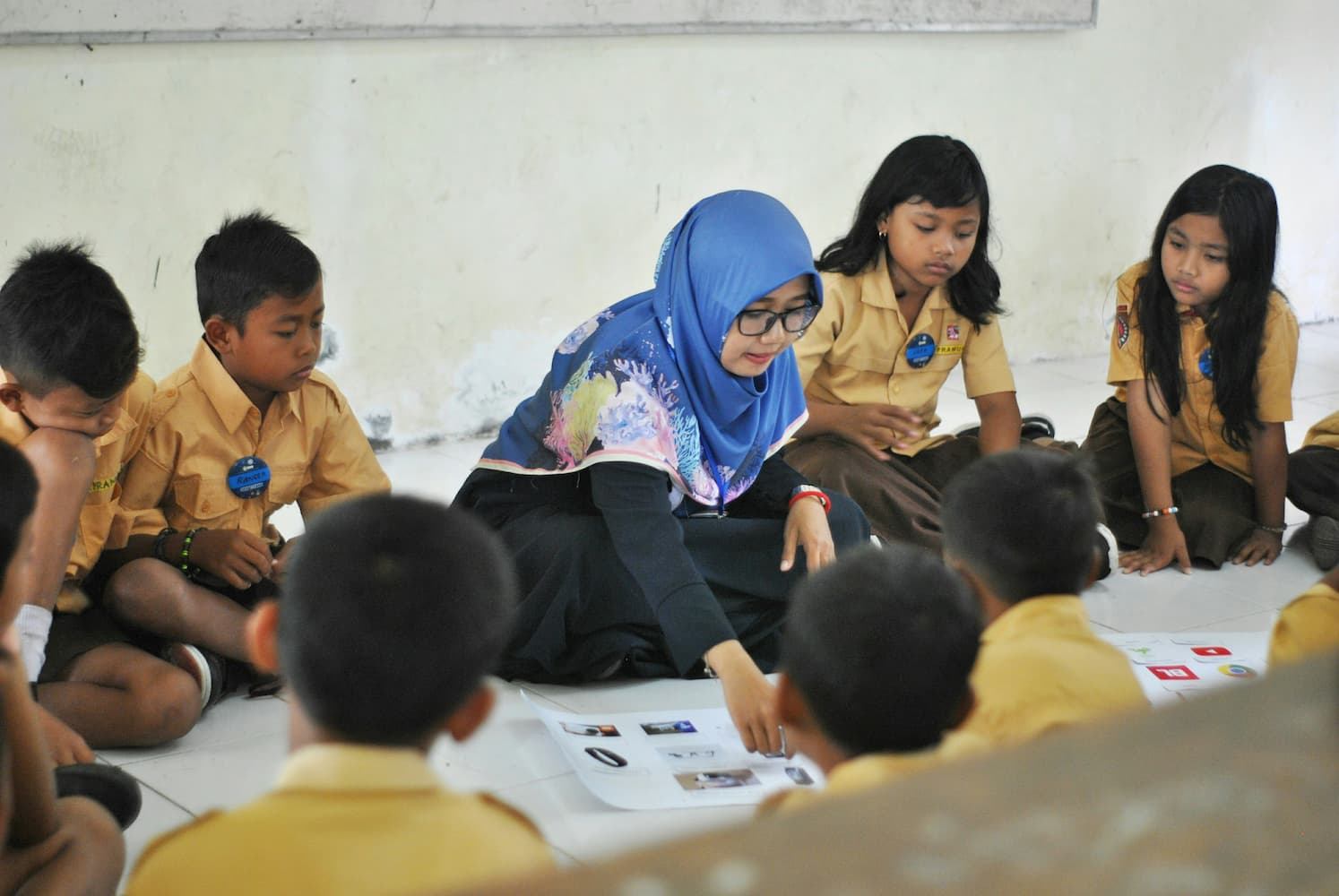
Who we are
A group of strategic partners, consortium partners, researchers, policymakers, practitioners and professionals working together.
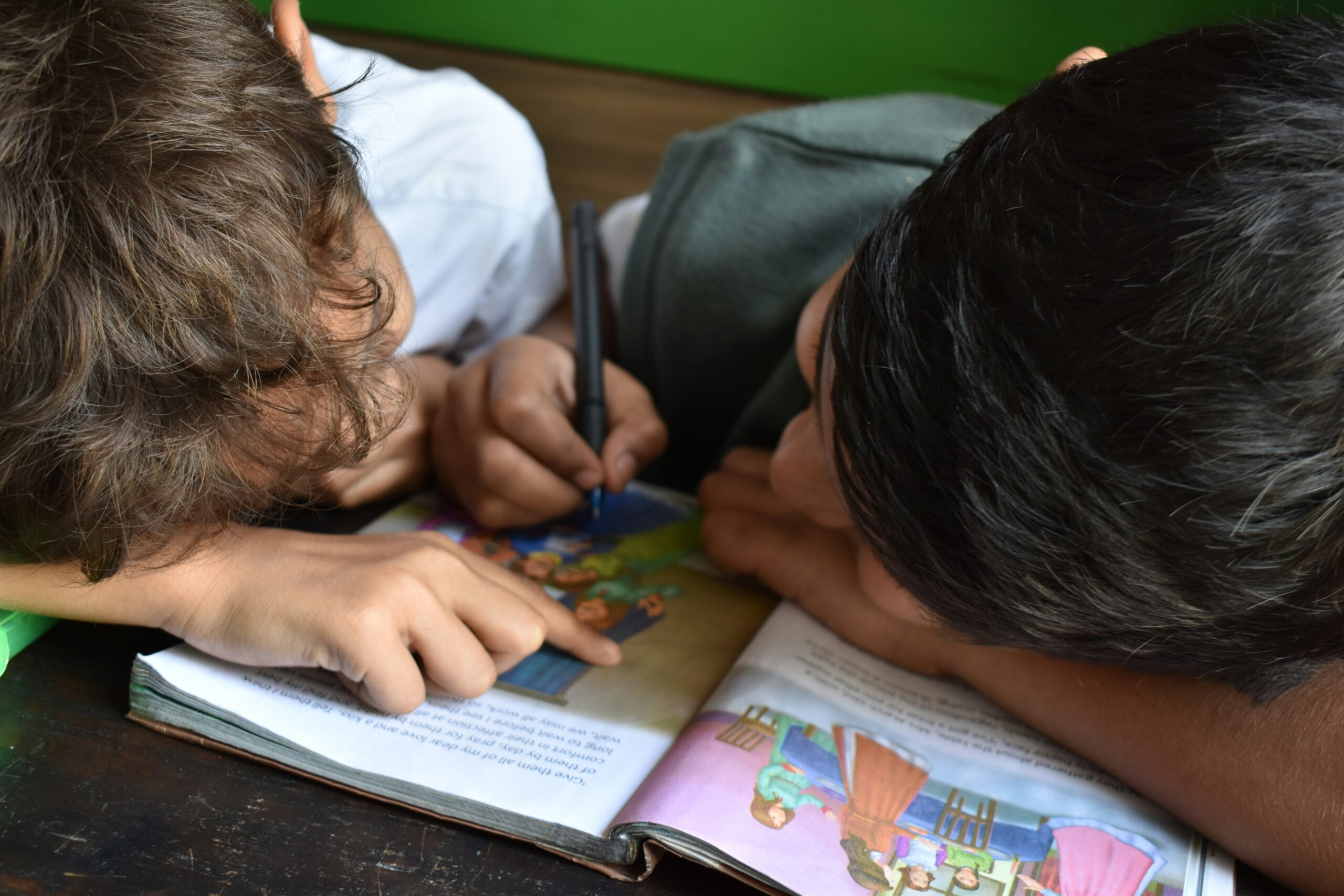
Get involved
Share our goal of literacy, numeracy and other key skills for all children? Follow us, work with us or join us at an event.
